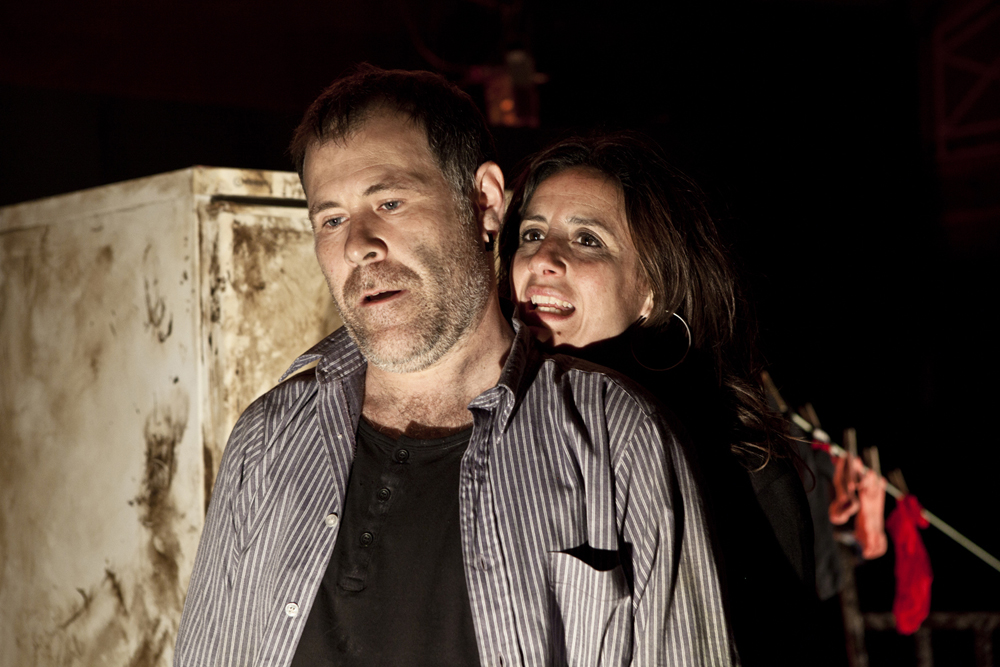
- On July 15, the Hozkailua or Store theatre was represented at the Victoria Eugenia Club Theatre in Donostia.

Last Saturday it was around 20 degrees in Donostia-San Sebastian, with a very low temperature level in the area. One of those days when, just in case, you take a thin jersey with the expectation that it will cool at night. We walked into the basement of Victoria Eugenia, took our positions in the front line, and a couple of minutes was enough to put us on the jersey, achis. The air conditioning was polar. “They would do it on purpose, the work is called Refrigerator,” you told me. We knew that those of Hutsarte are specialists in trying new things, breaking the fourth wall, making part of the work also the public, those things; but getting the audience into a Kelvinator before the work started… It couldn’t be, it wasn’t their intention, it took time to stop the Siberian wind machine, just before it appeared on stage Patricia Urrutia and Ander Lipus.
And they showed up with a refrigerator. An old fridge, dirty, rusty, that crawled heavily behind the stage was suggested with a few lines through a Mad Max style landscape. Jimmy is in the refrigerator, a friend of the protagonists Maite and Karlos – well, friend: kolega – who has recently died in London and asked for their people to be buried. But don't remember the name of the people. This search becomes a journey of initiation or, rather, a journey of reinaucence, based on memories of about 20 years old.

Some of the most representative works in the Basque theatre, such as Dejabu Seguro bide galdua and Arrastoak, are taking place in recent years around the review of the past; and in the case of the Refrigerator, I would say that it is twinned with another work that can be framed within this framework: Dejabu himself, Le Petit théâtre de Pain and Artedrada premiered the film in 2010 with the play 'La ceniza'. Similar elements in both cases, from the deceased partner, through the presence/absence of the deceased on stage, to the review of the friendly relations caused by death. There is also agreement in the text, as the work was written by Igor Elortza and Unai Iturriaga and this by Iturriaga.
But this time it is a small-format work in which more magnifying glasses come to each protagonist, taking weight off the generational portrait – although we ate some of his pintxos, when the actors sang songs of Bada or Eskorbuto –. It is a more striking work, which points directly to the vein with four well-chosen chords, accompanied by intense dialogues between Lipus and Urrutia – which is to fill the stage, which spent 60 minutes in the air.
At the end of August it was announced that a few days of rest will be taken during the summer. From September onwards, the theatres of Euskal Herria will begin to refresh again.